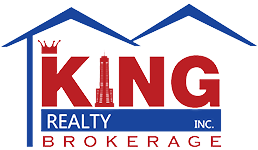Investing in Canadian real estate can be a lucrative venture, but success requires careful planning and strategy. Whether you’re a seasoned investor or just starting, this blog post will provide you with valuable insights into various real estate investment strategies in Canada.
Residential Real Estate Investments:
- Explore the benefits of investing in residential properties such as single-family homes, condos, and multi-unit buildings.
- Discuss strategies for generating rental income, property management, and long-term wealth building through residential real estate.
Commercial Real Estate Opportunities:
- Highlight the potential of commercial real estate investments in Canada, including office spaces, retail properties, and industrial buildings.
- Explain the different approaches to commercial real estate investment, from leasing to property development.
Real Estate Investment Trusts (REITs):
- Provide an overview of REITs and how they offer investors exposure to real estate without direct property ownership.
- Discuss the advantages and risks associated with investing in Canadian REITs.
Fix and Flip Strategy:
- Explore the concept of buying properties in need of renovation, making improvements, and selling them for a profit.
- Offer tips for successful fix and flip projects in the Canadian market.
Real Estate Crowdfunding:
- Explain how crowdfunding platforms allow investors to pool their resources to invest in real estate projects.
- Discuss the advantages of this approach and the potential returns.
Location, Location, Location:
- Emphasize the importance of location in real estate investment and how to identify promising markets in Canada.
- Provide insights into factors like job growth, infrastructure development, and neighborhood dynamics.
Financing Your Investment:
- Offer guidance on financing options for real estate investments, including mortgages, private lenders, and leveraging equity.
- Discuss the pros and cons of each financing method.
Risk Management and Due Diligence:
- Share strategies for conducting thorough due diligence before making an investment, including market research, property inspections, and legal considerations.
- Explain how risk management can help protect your investments.
Tax Considerations:
- Discuss the tax implications of real estate investments in Canada, including capital gains tax, rental income taxation, and tax deductions for investors.
Exit Strategies:
- Outline various exit strategies for real estate investors, such as selling, holding, or passing properties to heirs.
- Provide tips for maximizing returns when it’s time to exit an investment.
Investing in Canadian real estate offers a multitude of opportunities, but it’s essential to choose the right strategy based on your financial goals, risk tolerance, and market conditions. By following the insights and strategies outlined in this comprehensive guide, you can make informed decisions and embark on a successful real estate investment journey in Canada.



